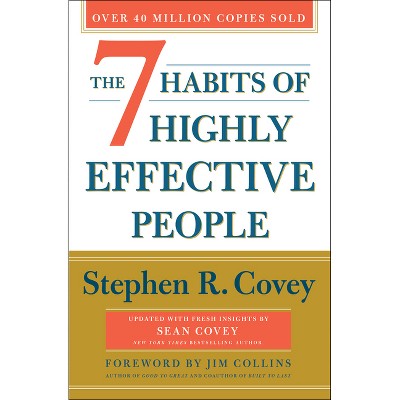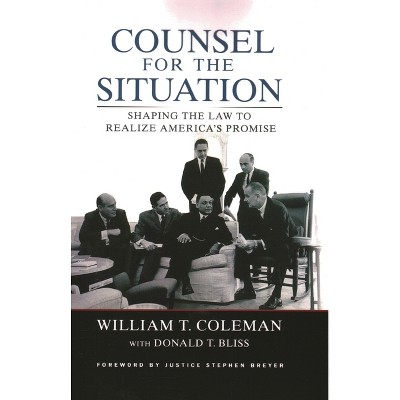About this item
Highlights
- Regulating Digital Industries calls for a single industry regulatory agency to promote competition, privacy and free speech in digital industries.
- About the Author: Mark MacCarthy is adjunct professor at Georgetown University's Communication, Culture, & Technology Program, a nonresident senior fellow at the Brookings Institution, and a nonresident fellow at the Institute for Technology Law and Policy at Georgetown Law.
- 498 Pages
- Business + Money Management, Industries
Description
About the Book
Regulating Digital Industries calls for a single industry regulatory agency to promote competition, privacy and free speech in digital industries.Book Synopsis
Regulating Digital Industries calls for a single industry regulatory agency to promote competition, privacy and free speech in digital industries.
Review Quotes
Few people have thought as deeply about how to effectively regulate digital technologies as Professor MacCarthy. This timely book is an urgent and well-argued reminder that we do not have to accept a status quo where a few wildly powerful tech companies continue to operate with virtually no regulation -- hurting competition, undermining democracy, and addicting a generation of America's kids. Professor MacCarthy sheds light on the 40-year campaign to discredit government regulation, which has left the American people unprotected against the coming wave of digital disruption -- from machine-learning algorithms to generative artificial intelligence. His book is an urgent call to learn from our history and empower an expert regulator for the tech sector, no different than how we oversaw the railroad, aviation, or broadcast television sectors in past eras. For the sake of our children and democracy, we would do well to answer Professor MacCarthy's call.
In this book, Mark MacCarthy takes on the most challenging problem in today's digital world -- how can the public enjoy the enormous benefits of digital platforms without ceding to these companies control of our digital lives? With scholarly precision, MacCarthy shows that decades of reliance on "self-regulation" and existing consumer protection laws have created a world where a handful of mammoth digital platforms exercise outsized control over how we do everything from look for work, shop for goods and services, and receive our daily news that shapes our opinions and our democracy. Fortunately, MacCarthy presents a workable solution to give us back control of our digital lives -- creating a new federal agency with both the expertise and the regulatory power to restore our online autonomy and protect our democratic institutions from the current flood of disinformation and harassment. This approach has worked before and can work again -- if policymakers find the political will to follow the proposals in this book and make it happen.
It took Progressive-era reforms to tame the Gilded Age. Professor MacCarthy, a skilled Washington insider as well as an accomplished scholar, explains how to re-invent both competition and privacy protection to tame today's second Gilded Age.
MacCarthy has a remarkable knack for focusing on the right questions, at the right time. In a field too often dominated by handwaving and yelling, he provides the thing we really need: lucid, thoughtful, and timely analysis.
Mark MacCarthy astutely points out the key ways in which current U.S. law fails to address the enormous economic and social harms caused by dominant digital platforms and then provides a cogent and comprehensive solution: a public oversight body up to the task of reining in digital market abuses. By reviving the time-tested sector regulatory model updated to reflect today's market realities, MacCarthy delivers a challenge for lawmakers that must be addressed to preserve our democratic institutions and competitive marketplace principles.
Mark MacCarthy has produced a clean, clear, and thought-provoking analysis of the challenges of the digital platform economy. While the problems of privacy invasion, competition destruction, and misinformation are well documented, the solutions are not. MacCarthy's solution: the revival of government's recognition that new technologies require new kinds of oversight. This book belongs on every policymaker's desk.
Mark MacCarthy makes a strong case for addressing the challenges arising from big tech using the regulatory tools we've developed for other industries. An important contribution to the debate of the decade.
Mark MacCarthy's decades of experience in government, the private sector, and academia is reflected in a work of great importance, certain to influence the ongoing policy debates surrounding the incalculable benefits and the substantial costs attributable to the digital sector. Dr. MacCarthy's proposed solution, a dedicated digital regulatory agency with sufficient legal authority and relevant expertise, is designed to protect the benefits while minimizing the costs.
Regulating Digital Industries describes the digital business models and the reasons that today's legal and regulatory institutions have not been successful in addressing market power, privacy protection, and "information disorder" issues that have emerged from those business models. By going beyond admiring the problems and offering a practical, if long term, solution, Dr. MacCarthy has made a material contribution to one of the most important policy debates of our time.
To begin to address the damage neoliberalism and tech-utopianism have wrought, Mark MacCarthy offers big, creative solutions, rooted in history but designed for current challenges. He recognizes that guardrails can mitigate societal harms while enhancing innovation. It is a handy guide for policymakers and citizens alike eager for practical options.
With a deep grasp of history and a sharp policy acumen, Mark MacCarthy provides readers with a detailed and alarming portrait of the ever-expanding threats from Big Tech. As MacCarthy illustrates, the government's laissez-faire approach to technology regulation has decisively failed, leaving us with entrenched monopolies, a vast corporate surveillance apparatus, and a youth mental health crisis. Regulating Digital Industries is required reading for students, policymakers, and anyone who cares about the future of our democracy.
With the idea of a regulator for AI gaining traction, Professor Mark MacCarthy's blueprint for sectoral digital regulation is timely and important. He explains why and how decades of experimentation in an unregulated digital sphere produced the predicted results of undue concentration, information disorder, and commercial surveillance. AI looks ready to supercharge these problems. But regulation is difficult. Professor MacCarthy has been providing thought leadership on how to stand up digital regulation for years and his work has never been more important.
About the Author
Mark MacCarthy is adjunct professor at Georgetown University's Communication, Culture, & Technology Program, a nonresident senior fellow at the Brookings Institution, and a nonresident fellow at the Institute for Technology Law and Policy at Georgetown Law. He was formerly a public policy advocate for Capital Cities/ABC, the Wexler/Walker Group, Visa, and the Software & Information Industry Association. In the 1980s, he served as professional staff member of the Committee on Energy and Commerce of the US House of Representatives under the chairmanship of Representative John D. Dingell Jr. of Michigan. A prolific writer and researcher, he publishes commentary regularly on tech policy issues with Brookings, Lawfare, The Hill, Forbes, and the Centre for International Governance Innovation. He lives in Bethesda, Maryland, with his wife, Ana Maria Espinoza.Shipping details
Return details
Trending Business & Law Books












